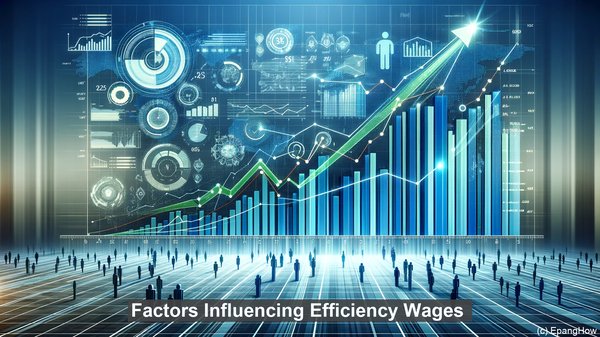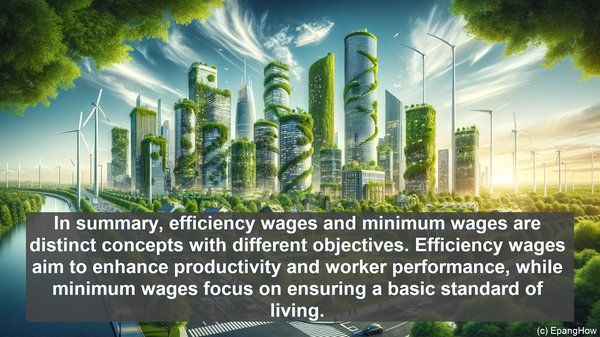Introduction: The Importance of Wages
Wages are the bedrock of any labor market. They determine not only the income of workers but also the overall functioning of the economy. In this context, both efficiency wages and minimum wages play significant roles. Let’s start by understanding the basics of each concept.

Efficiency Wages: Enhancing Productivity
Efficiency wages are wages that exceed the market equilibrium. In other words, they are higher than what would be necessary to attract workers. This might seem counterintuitive at first. Why would employers pay more than the going rate? The rationale behind efficiency wages lies in the potential benefits they offer. By providing higher wages, employers can motivate workers to perform better, leading to increased productivity. This, in turn, can result in cost savings, improved product quality, and even enhanced worker loyalty.
Factors Influencing Efficiency Wages
Several factors can influence the determination of efficiency wages. One crucial aspect is the presence of adverse selection in the labor market. Adverse selection refers to the situation where employers have limited information about the abilities and work ethic of potential hires. By offering higher wages, employers can attract a pool of candidates with better qualifications, reducing the risk of hiring underperforming individuals. Efficiency wages can also act as a screening mechanism, as those unwilling to work hard are less likely to accept a job with higher performance expectations.
Minimum Wages: Ensuring a Basic Standard
While efficiency wages focus on productivity and performance, minimum wages have a different objective. They are the legally mandated lowest level of compensation that employers must provide to their workers. The primary purpose of minimum wages is to ensure that workers receive a basic standard of living. By setting a floor on wages, policymakers aim to prevent exploitation and reduce income inequality. Minimum wages can also have positive externalities, such as reducing the reliance on social welfare programs and boosting consumer spending.

The Impact of Minimum Wages
The effects of minimum wages are a subject of ongoing debate among economists. On one hand, proponents argue that they can alleviate poverty and improve the well-being of low-income workers. On the other hand, critics contend that minimum wages can lead to job losses, particularly among small businesses with limited profit margins. The actual impact of minimum wages can vary depending on factors such as the level of the wage floor, the elasticity of labor demand, and the overall economic conditions.
